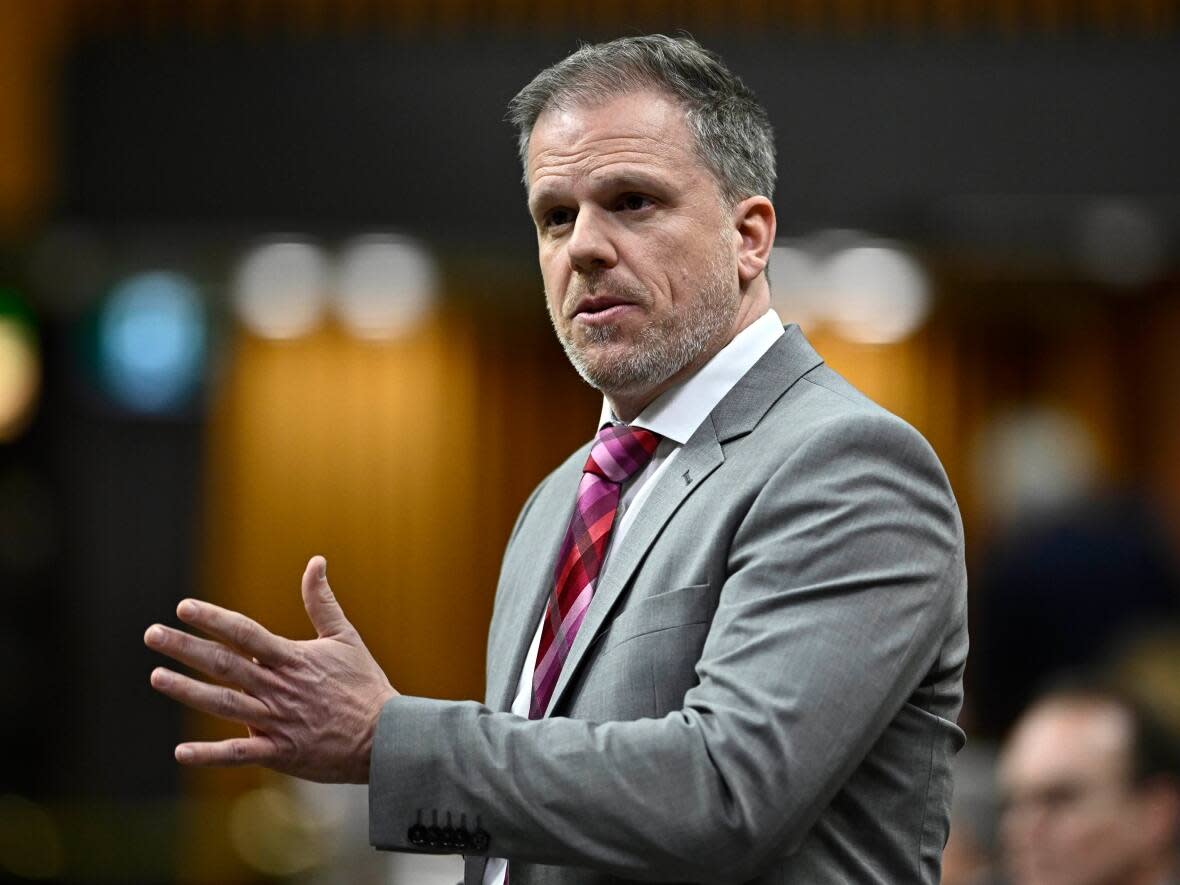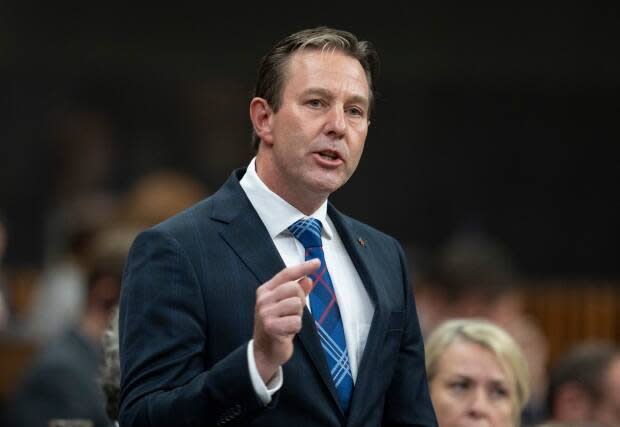'Hundreds of thousands' of seniors will get subsidized dental care next month, health minister vows

- Oops!Something went wrong.Please try again later.
- Oops!Something went wrong.Please try again later.
Canada's health minister is promising "hundreds of thousands" of seniors will receive subsidized dental work next month under the Canadian Dental Care Plan (CDCP), despite a low sign-up rate among the dentists who are expected to provide that care.
"Hundreds and hundreds of thousands of seniors are going to be seen in May," Mark Holland said this week outside of the House of Commons. "My objective is to make sure that we do get everybody seen, and that we scale up the existing system."
Holland acknowledged there will be "bumps along the way" once the public program — which eventually is supposed to provide dental insurance to one quarter of Canadians — starts in just a few weeks. Ottawa is gradually expanding eligibility and is starting with Canadian residents 70 years of age and older; 1.7 million seniors already have registered.
"It's going to take us a little time to get to full roll-out … It's going to be a challenge to meet the entire demands of the population, and we always knew that," Holland said.
WATCH: Dentists slow to sign up for federal dental care plan
Holland's comments come after CBC News revealed the pace of oral health-care providers signing up for the program has been slow. Dental associations argue the paperwork Ottawa will require to process insurance claims imposes an unreasonable burden on dental offices that are already struggling with a lack of administrative staff.
Holland has said an alternative method is in the works to allow dentists to bill the federal government for their services, but hasn't offered more details.
"We set up a task group to really get that administrative burden down as low as it can possibly get," Holland said, adding that in 90 per cent of cases, the program's aim will be to have dental offices reimbursed within two days.
"We can't just have no controls on it, otherwise somebody could abuse it and we wouldn't want that, and we do have responsibility to taxpayers," he said.
NDP health critic Peter Julian said Ottawa needs to simplify the billing system for the dental program to be successful.
"This is the biggest initiative in health care we've seen since universal health care," Julian said. "We want to maximize the number of dentists across the country who are part of the plan."
Dental care is a key pillar of the supply and confidence agreement between the federal Liberal government and the NDP.
That deal, which has been in place now for more than two years, sees the NDP support the Liberals on key votes in the House of Commons, keeping the minority government in power. In return, the Liberals have committed to passing legislation on NDP priorities, such as national dental insurance.
Conservatives silent on dental care stance
Despite repeated requests for comment from the Official Opposition, Conservative health critic Stephen Ellis would not answer questions from reporters Wednesday about where the party stands on the $13 billion dental care program.
The Conservatives and Bloc Quebecois voted against legislation in October 2022 that included a temporary dental care program for children — an interim plan that was introduced while the government worked to bring in the CDCP.
Ellis briefly addressed reporters before entering a Conservative caucus meeting on Wednesday.
"You know what, it's interesting, because the minister of health keeps touting how many Canadians have signed up for the dental care program. I guess the challenge I would like all of you to take up is how many dentists have signed up, so I'll leave that with you," he said to reporters.
Holland said last week "thousands" of oral health-care providers have signed up for the program so far. CBC News has repeatedly asked the minister's office for more specific numbers.

'I'm afraid it won't happen': Halifax senior
Halifax senior Julie Kelsey called the deployment of the program "a mess" after finding out that, although she qualifies for coverage, her dentist won't be taking part.
The retiree said one of her biggest expenses is paying out of pocket for dental work, which she said costs her $2,000 to $3,000 each year.
"I guess what I'll have to do next week is call around, but it does sound like it's going to be really hard to find someone," Kelsey said.
Seniors deserve to get clear updates from the federal government and dentists about the program, she said.
"There's no one to tell us anything. I'm sure I'm not the only one who is wondering what's going on," she said.
"I'm afraid it won't happen."
Do you have questions about how Canada's new dental care plan may affect you? Send an email to ask@cbc.ca.

